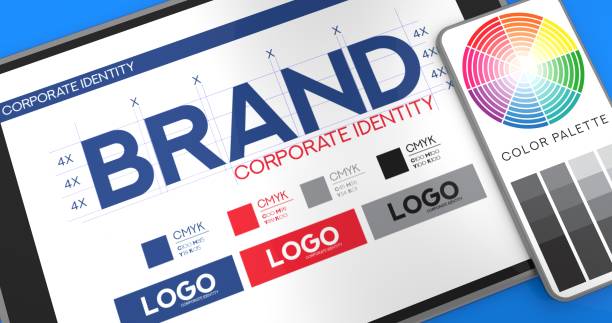Have you ever wondered why some brands become household names while others struggle for recognition? What sets apart companies like Apple, Coca-Cola, and Nike from thousands of others in their industry? The answer is simple yet profound: corporate branding. Building a powerful corporate brand is more than just having a logo or catchy slogan—it’s about defining your business’s position in the market. In today’s crowded marketplace, where customers are bombarded with options, establishing a recognizable and reputable brand can be the game-changer your business needs. So, let’s dive into why corporate branding is essential to define your market position and how it can impact every facet of your business success.
Understanding Corporate Branding: What It Is and Why It Matters
Corporate branding is the personality, values, and promise that your company communicates to the world. Additionally, it’s the story behind your logo, the experience customers associate with your name, and the lasting impression they hold about your company. At its core, corporate branding encompasses not only visual elements like logos, colors, and taglines but also intangible aspects such as customer service, quality, and consistency.
But why does this matter? For one, a strong corporate brand builds trust. When customers recognize your brand, they’re more likely to feel confident in purchasing from you. This recognition fosters loyalty, which leads to repeat customers, word-of-mouth referrals, and long-term success. Additionally, a clear brand identity distinguishes your business from competitors, helping you claim your unique position in the market.
Key Takeaway:
Corporate branding is the backbone of your business’s market identity. So, it is how you express who you are, what you do, and why customers should care.
Why Defining Your Market Position Is Crucial
When it comes to establishing a successful brand, positioning is everything. Moreover, market position is essentially how you are perceived relative to your competitors. For instance, while both Gucci and H&M sell fashion, they occupy vastly different spaces in the market because they cater to distinct customer needs and values.
Your market position answers questions like:
- Who are our primary customers?
- What unique value do we offer?
- How do we stand out from competitors?
By defining a unique market position, your corporate branding strategy aligns with the needs and expectations of your target audience. A well-positioned brand naturally attracts a loyal following, which directly contributes to your business’s longevity and profitability.
Key Takeaway:
Understanding your market position allows you to communicate your unique value proposition, drawing the right audience to your brand.
The Elements of a Strong Corporate Branding
Creating a brand that resonates with customers requires more than just good design. So, here are the essential elements that contribute to a memorable and effective corporate brand:
1. Core Values and Mission Statement
Every strong brand starts with a clear purpose. What does your company stand for? What impact do you want to make in the world? Additionally, crafting a mission statement and defining your core values provide a foundation for everything your business does. These guiding principles not only resonate with customers but also align your team with the company’s vision.
2. Brand Personality
Think of your brand as a person—how would it sound, act, and engage with customers? So, developing a brand personality helps humanize your business, making it relatable and memorable. Whether your brand is playful, innovative, or professional, this personality should be evident in every interaction customers have with your brand.
3. Consistent Visual Identity – Corporate Branding
Your visual identity is often the first impression customers have of your brand. Moreover, consistency in design elements—like your logo, color scheme, typography, and website layout—helps reinforce brand recognition. So, visual consistency across all marketing channels builds trust and professionalism.
4. Unique Value Proposition (UVP)
A UVP is a concise statement that explains why customers should choose you over competitors. Furthermore, it captures your unique benefits and promises, answering the question, “Why should I buy from you?” A strong UVP speaks directly to your target audience and highlights what makes your brand indispensable.
Key Takeaway:
The elements of a strong corporate brand go beyond aesthetics. So, your values, personality, and visual identity combine to create a memorable, trust-inspiring brand.

How Corporate Branding Impacts Your Market Position
So, how does a well-defined corporate brand impact your place in the market? So, simply put, it makes your business memorable and positions it as the go-to option for customers within your industry. Here’s how:
1. Boosts Customer Loyalty and Trust
Consistency in branding signals reliability. When customers repeatedly have positive experiences with your brand, they begin to trust you. Additionally, this trust leads to loyalty, where customers return to your brand time and again. Also, loyal customers often become brand advocates, spreading positive word-of-mouth.
2. Enhances Credibility
A professional and consistent brand image tells customers that you are a legitimate, trustworthy business. This credibility can make a huge difference, especially in competitive or saturated markets. When customers believe in your brand, they are more likely to choose you over unfamiliar or inconsistent brands.
3. Improves Customer Recognition – Corporate Branding
The more recognizable your brand is, the more likely customers are to choose it. For example, seeing a familiar logo or hearing a known tagline can trigger positive memories or associations with your brand. This top-of-mind awareness can be crucial when customers are ready to make a purchase.
4. Differentiates You from Competitors
A well-established brand distinguishes your business from others. So, by clearly articulating what makes your brand unique, you stand out from competitors. This differentiation is especially important in crowded markets where multiple companies offer similar products or services.
Key Takeaway:
Corporate branding impacts every touchpoint with your customers, shaping their perception and helping your brand rise above competitors.
Steps to Build a Market-Defining Corporate Branding
Now that we’ve covered the importance of corporate branding and its elements, let’s dive into the practical steps to build a brand that defines your market position.
1. Research Your Market and Audience
Understanding your target market’s preferences, needs, and behaviors is crucial to creating a brand that resonates. Conduct surveys, analyze competitor strategies, and identify gaps in the market where your brand can shine.
2. Develop Your Brand Messaging
Your brand messaging should reflect your values and resonate with your target audience. Craft clear, concise messages that consistently communicate your value and vision. This messaging will become the foundation of your brand’s voice across all platforms.
3. Create a Cohesive Brand Identity – Corporate Branding
Invest time in designing a logo, color scheme, and typography that align with your brand personality and appeal to your target audience. Your visual identity should be consistent across your website, social media, packaging, and marketing materials.
4. Maintain Brand Consistency
Consistency is essential for building trust and brand recognition. Ensure your brand elements, messaging, and customer service align with your brand’s identity. Regularly train employees to embody your brand values in their interactions with customers.
5. Adapt and Evolve
Even the most successful brands adapt to market changes. Listen to customer feedback, monitor market trends, and remain open to rebranding when necessary. Staying relevant keeps your brand at the forefront of your industry.
Key Takeaway:
Building a market-defining brand requires dedication, consistency, and a customer-centric approach.

Conclusion: Why Your Corporate Branding is Your Competitive Advantage
In a world of countless choices, a strong corporate brand can be the difference between obscurity and market leadership. Additionally, by investing in corporate branding, you’re not just creating a logo or tagline; you’re crafting a complete experience that tells customers who you are and why they should trust you. Also, a well-defined brand doesn’t just represent your company—it sets you apart from competitors, fosters customer loyalty, and positions you as a trusted leader in your industry.
So, ask yourself: Is your brand saying everything you want it to? Are you leveraging your brand to define your market position and attract the right audience? If not, now is the time to build a brand that doesn’t just speak but resonates, inspiring customers to choose you every time.
Lastly, with a focus on core values, consistency, and customer-centricity, your brand can become the foundation of your business’s growth and market dominance. So, embrace the journey, and watch as your brand defines your market position and propels your business forward.








